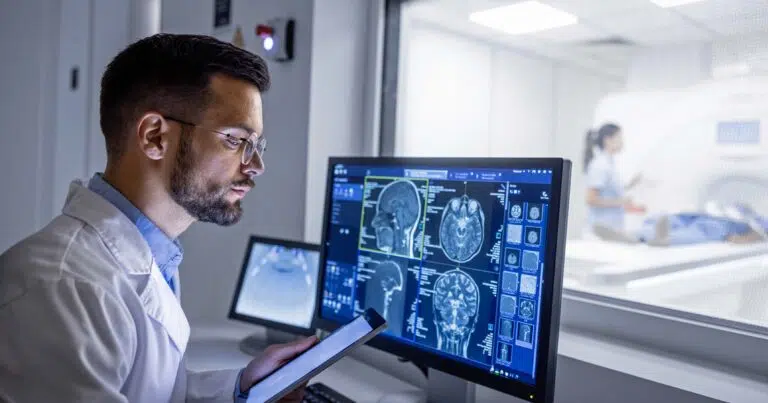Medical Laboratory Scientist Career Guide
Looking for a different career guide?
Overview
Medical Lab Scientists play a vital role in the healthcare field by conducting intricate laboratory tests that aid in diagnosing, treating and preventing diseases. These professionals are responsible for analyzing various biological samples, such as blood, urine and tissue, using advanced laboratory equipment and techniques. Their findings provide essential information that helps doctors make accurate medical decisions.
Education
To become a Medical Lab Scientist, you typically need a Bachelor's degree in Medical Laboratory Science or a related field. The length of study is typically four years, during which you'll receive a comprehensive education in biology, chemistry, microbiology and other relevant subjects. Many universities and colleges offer accredited programs that prepare students for this career path.
Qualifications

Skills
Staff and Travel Medical Lab Scientists need a combination of technical, analytical and interpersonal skills. Proficiency in operating laboratory equipment, attention to detail and the ability to accurately interpret results are essential. Strong problem-solving skills and adaptability to new technologies are crucial due to the ever-evolving nature of medical science. Communication skills are also important, as Medical Lab Scientists often collaborate with healthcare professionals to ensure accurate diagnosis and treatment.
Responsibilities
Medical Lab Scientists are responsible for a range of tasks, including collecting and analyzing samples, conducting tests to detect diseases, pathogens or abnormalities, maintaining laboratory equipment and ensuring quality control and accuracy in all processes. They also play a role in developing new testing methods and protocols.
Salary Insights
The average salary for a Medical Laboratory Scientist is $2,022.44 per week.
Last updated on March 26, 2025. Based on active jobs on Vivian.com.
Pros & Cons
Medical Lab Scientists play a crucial role in patient care by providing necessary data for diagnosis and treatment. They work in a diverse range of settings, such as hospitals, clinics, research institutions and pharmaceutical companies. The demand for skilled Medical Lab Scientists is consistently high, providing job security for those in the field. Additionally, the role involves continuous learning and keeping up with advancements in the field, making it intellectually engaging. Overall, a career as a Medical Lab Scientist offers impactful contributions to patient care, diverse work settings, job security and intellectual stimulation.
Although a career as a Medical Lab Scientist can be rewarding, it also comes with its own set of challenges. One of the biggest challenges is the high level of responsibility that comes with the job. Any errors made during testing could lead to misdiagnosis or incorrect treatment, which could have serious consequences for patients. Additionally, Medical Lab
Some of the content on this page was enhanced using artificial intelligence.
Join over 1 million healthcare workers that are getting a head start with Vivian.
Join Vivian





